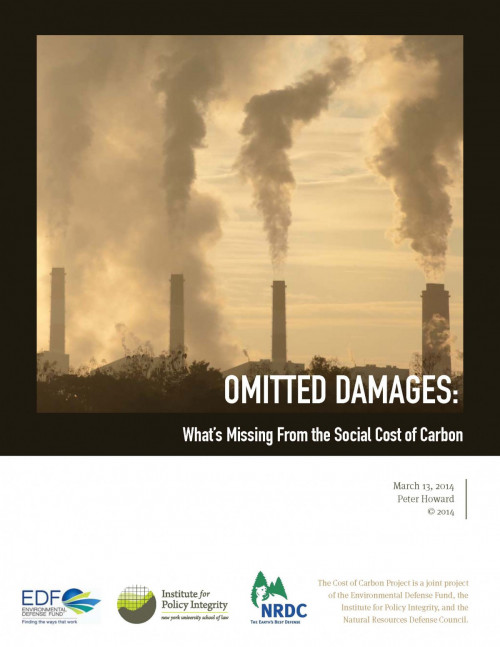-
Payday Lending Public Comments
The Consumer Financial Protection Bureau (CFPB) is currently developing regulations that could protect millions of lower-income Americans from predatory payday lenders. We submitted public comments on the agency’s regulatory approach.
-
Supreme Court Sends EPA’s Mercury Rule Back to Circuit Court for Additional Review
Today, the Supreme Court ruled that the Environmental Protection Agency (EPA) did not consider costs at the appropriate stage of the regulatory process before crafting the Mercury and Air Toxics Standards. This rule, which regulates toxic emissions from power plants, will now be sent back to the U.S. Court of Appeals for the D.C. Circuit, where the judges will decide how the EPA should proceed.
-
Policy Integrity Helps Reform Federal Rulemaking Petition Process
Individuals have the right to petition federal agencies to issue, amend, or repeal regulations, but agencies lack a uniform process for handling these petitions. Policy Integrity recently worked with the Administrative Conference of the United States (ACUS), an independent federal agency dedicated to improving the administrative process, to create new guidelines for the petition process. In early December, ACUS adopted new recommendations for federal agencies, based on Policy Integrity’s research and suggestions.
-
Livermore Argues Offshore Leasing Case in DC Circuit Court
The government’s offshore leasing system fails to account for uncertainties about environmental harms—the system ignores “option value,” a well-established economic technique that quantifies the value of delaying decisions to acquire crucial information. As a result, the current leasing system leads to over-exploitation of natural resources and excessive environmental risk.
-
Tobacco Products and Consumer Welfare - Public Comments
Policy Integrity recently submitted public comments to the Food and Drug Administration (FDA) on its proposed rule to deem certain tobacco products, such as electronic cigarettes and cigars, subject to regulation. We believe the FDA may be dramatically understating the benefits from consumer behavior changes due to regulation of new tobacco products.
-

Rethinking Health-Based Environmental Standards
In Whitman v. American Trucking, the Supreme Court interpreted the Clean Air Act to require the EPA to set the National Ambient Air Quality Standards (NAAQS), without considering costs. Instead, the agency must rely exclusively on health-related criteria. The authors argue that such health-based standards are problematic because there is no coherent way to set the permissible level of pollution based on health considerations alone and, ironically, the NAAQS have generally been set at levels that are inefficiently lax from an economic perspective. The authors urge a reinterpretation of the American Trucking case that would allow the EPA to consider costs-benefit analysis when it would lead to more stringent standards, as it currently does for most regulated pollutants.
-

Omitted Damages: What’s Missing from the Social Cost of Carbon
The social cost of carbon is an estimate of the economic damage done by each ton of carbon dioxide spewed into the air. Howard examines the Integrated Assessment Models used to produce the social cost of carbon estimate and gives a comprehensive review of what each model accounts for and what each model misses.
-
Comments Submitted to OMB in Support of the Social Cost of Carbon
Policy Integrity submitted comments to the Office of Management and Budget (OMB) voicing our support for the Administration’s continued use of the social cost of carbon (SCC) as it provides an important, if conservative, estimate of the costs of climate change and the benefits of reducing carbon pollution.
-
_110_86_90.jpg)
Quantifying Regulatory Benefits
The author responds to an argument made by Cass Sunstein that administrative agencies should use breakeven analysis when unable to quantify benefits of a specific regulation. Breakeven analysis seeks to determine how high nonquantifiable benefits of a regulation would have to be for the benefits to justify the costs. In this Comment, the author argues that breakeven analysis can be useful but is always a second-best technique. The first-best approach is to quantify the benefit.
-

Cost-Benefit Analysis and Agency Independence
In “Cost-Benefit Analysis and Agency Independence,” Professor Michael A. Livermore argues that cost-benefit analysis provides a standard that constrains the exercise of OIRA’s power, helping to preserve the autonomy of government agencies in the face of White House review. This argument challenges the prevailing view that cost-benefit analysis is a tool for the President to impose authority over executive agencies.
Viewing recent projects in Government Transparency
